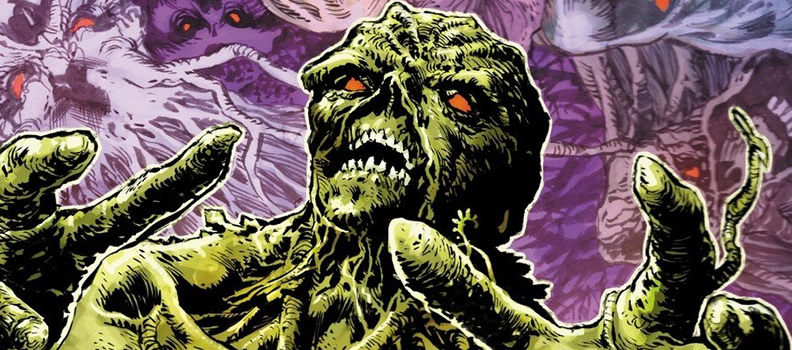Inside the seasonal anthology: TV writers tackle episodic storytelling | US television

Prolific TV showrunner Ryan Murphy recently compared American Horror Story to The Twilight Zone. What seems like a ridiculous juxtaposition is actually one of the more reasonable things the Nip/Tuck creator has said recently: the shows are more similar than they appear. American Horror Story is, perhaps, the most visible show in the genre that The Twilight Zone has exemplified for decades: the anthology.
TV’s early anthology shows (in addition to The Twilight Zone, there’s Alfred Hitchcock Presents, Tales From the Crypt, and The Outer Limits) produced distinct, standalone episodes almost totally unrelated in plot and character, connected by an overarching sensibility and creative team. These stories are more like different songs on an album than the way current TV shows conceive of the episode – as a partly functional building block in a longer story.
It’s impossible to imagine a real, dramatic anthology show taking off today. (Two forthcoming comedies – High Maintenance, poised to make the leap from web series to HBO, and Joe Swanberg’s upcoming Netflix show Easy – are full-on comedic anthologies.) Viewers demand some level of narrative cohesion and payoffs for their years of investment in a series, even if it’s a comedy (think of Arrested Development’s dense, long-running jokes). And few, if any, writers and directors could accomplish the older anthology task of introducing a whole set of characters and situations, resolving them within the span of an episode, and keeping the whole thing visually and dramatically appealing.
This is where the seasonal anthology comes into play: these shows tell a contained story like an episode of The Twilight Zone, but it lasts for 10 to 13 episodes rather than one, and resets at the beginning of the next run. Consider the first seasonal anthology: American Horror Story, which retains its creative team (Ryan Murphy and Brad Falchuk) and some of its cast (Jessica Lange, Sarah Paulson) while telling a different grim story each year with names like Murder House, Asylum, Coven, and Freak Show. The seasonal anthology, then, appears to split the difference between over-serialized, blurred binges like House of Cards and the breezy, forgettable quality of an episodic procedural like NCIS.
Development executives certainly see the potential – seasonal anthologies are all the rage. Starz’s The Girlfriend Experience has been renewed as an anthology series, while executive producer Steven Soderbergh’s other TV show may return as a sort of two-season anthology. Fargo has elements of this structure, too, with its clockwork seasons and shifting focus, though it isn’t quite a seasonal anthology – while each season tells a different story with similar thematic concerns, they share characters, but not full casts. Murphy has also been gifted with two more anthology shows: American Crime Story and the upcoming Feud. (Not for nothing are most of these shows on FX, a network that attracts prestige series and talent but often positions itself explicitly in opposition to the deluge of sameness that is Netflix.)
Still, there’s a reason that American Horror Story will probably never quite take the place of something like Game of Thrones – anthologies are hard. The format is difficult to fine tune, mostly because it requires, essentially, a totally new show each year, and though the stories might be tighter, they’re likely to be incapable of drawing the same long-term interest. (In this respect, they’re perfect for Murphy, who has never met an idea he didn’t lose interest in by the time he finished writing it down.) Effective anthology storytelling requires clarity and consistency of vision, and even the successful seasonal anthologies have struggled to find it.
The People v OJ Simpson: American Crime Story epitomizes all of the best things about seasonal anthologies – it tells a single story with a closed narrative arc and payoffs, casts an appropriately broad thematic net, and, above all, has distinct episodes that add up to a bigger whole. But it’s a little early to say whether American Crime Story will maintain its current promise. Murphy is returning, but writers Scott Alexander and Larry Krajewski, who were invested in the OJ trial and in depicted legal proceedings more broadly, are not – nor is most of the stellar cast. And the next season is, apparently, about Hurricane Katrina, a topic decidedly unsuited to Murphy’s campy sensibility. American Crime Story might eventually become something engaging (and good), but the only thing that will save the season anthology is also the same thing that makes TV worth watching: time.
Source link


